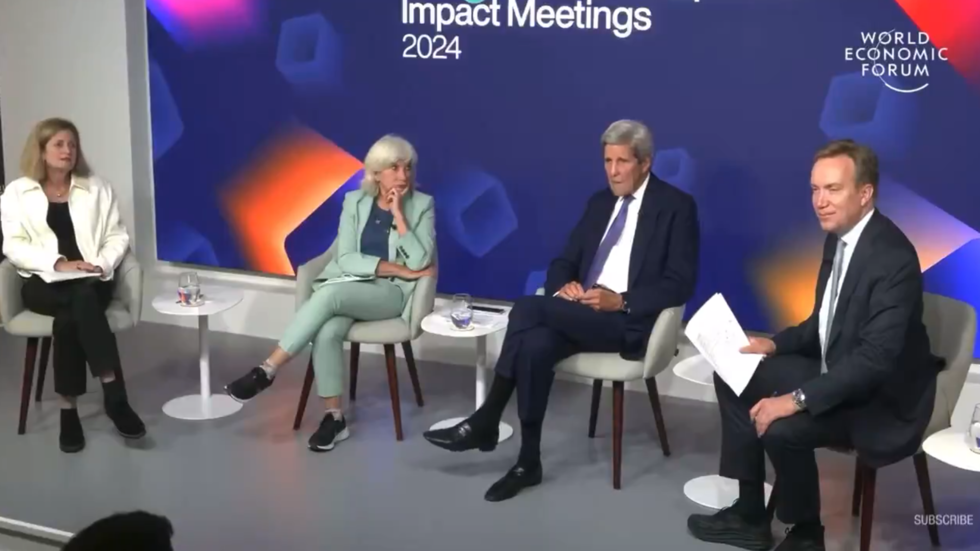While Israel celebrates the IDF’s success against Hezbollah, Moody’s recent credit downgrade highlights looming economic challenges that the country cannot afford to ignore.
By JPOST EDITORIAL SEPTEMBER 29, 2024 21:48 A Moody's sign on the 7 World Trade Center tower is photographed in New York August 2, 2011.
(photo credit: Mike Segar/Reuters)
A Moody's sign on the 7 World Trade Center tower is photographed in New York August 2, 2011.
(photo credit: Mike Segar/Reuters)
While many Israelis are still reveling in the aftermath of the Israel Defense Forces (IDF) successful operation that eliminated Hezbollah leader Hassan Nasrallah on Friday, we must not lose sight of the economic challenges we face.
Moody’s recent decision to downgrade Israel’s credit rating is not just a technical adjustment, it’s a stark reminder that the country’s long-term financial health is in jeopardy. Despite the sense of national euphoria over the IDF’s achievements, the economic warning signs are too serious to ignore.
On Friday, Moody’s downgraded Israel’s credit rating from A2 to Baa1, marking a significant drop – Israel’s sharpest in nearly three decades. For context, even during the Second Intifada’s turmoil, Israel’s credit remained stable because the country had clear, internationally acceptable plans for both its military and economic challenges.
But now, amid our most protracted and expensive war, the country is grappling not only with military threats but also with the perception of an ineffective government, leading to international doubt in Israel’s ability to manage its finances.
'A severe indication of the challenges ahead'
The downgrade has profound implications for Israel’s economic standing. As The Jerusalem Post’s economic correspondent Eve Young explained, this two-notch downgrade, the second since the war with Hamas began, is not a routine fluctuation but a severe indication of the challenges ahead.
The agency’s analysis paints a worrying picture. “Moody’s explicitly stated that the agency no longer expects a swift and strong economic recovery as in previous conflicts,” Young reported. This depicts a deepening concern that the current government has neither a clear exit strategy from the military conflict nor a comprehensive plan to restore the nation’s economic health.
This downgrade will have both immediate and long-term consequences. Israel’s borrowing costs will rise significantly, making funding essential services, such as education, healthcare, and defense, more expensive.
Prof. Dan Ben-David of Tel Aviv University, an expert on Israel’s socioeconomic situation, underscored this point in a recent interview with the Post. He highlighted how the downgrade will further inflate Israel’s ballooning deficit: “What the lower credit rating does now is raise the interest costs of the already ballooning government deficit even further.” This will add tens of billions to Israel’s debt service costs, leaving less room in the budget for critical domestic investments.
In response, Finance Minister Bezalel Smotrich reassured the public that the economy would recover after the war is won and Israel’s credit rating would return to its “true” level. However, this optimism appears misplaced. Moody’s rationale for the downgrade goes beyond the immediate war effort. As Young noted, the agency expressed concern over Israel’s long-term governance, citing failures to address internal political instability and military service exemptions for the ultra-Orthodox communities.
These unresolved issues undermine confidence in the government’s ability to govern effectively in times of crisis. Furthermore, the absence of a clear economic recovery plan after the war and continued geopolitical instability have eroded investor confidence.
Stay updated with the latest news!
Subscribe to The Jerusalem Post Newsletter
Ben-David calls out the clueless
Ben-David did not mince words when critiquing the government’s economic leadership: “Israel has a clueless finance minister,” he said, referring to Smotrich. The professor explained that the costs of rebuilding the southern and northern regions and the continued defense spending required even after the war would place additional strain on an already stretched budget.
It is important to understand what this means for the average Israeli. Higher borrowing costs for the government trickle down to everyday life. Interest payments will consume a larger portion of the national budget, meaning less money for public services.
As Ben-David pointed out, in 2022, Israel’s interest payments alone were more significant than the costs of running the country’s hospitals and entire primary and secondary education systems. This money could have been spent on improving education, healthcare, and infrastructure, but it went to service debt instead. These interest payments will rise with the downgrade, forcing the government to raise taxes or cut spending in other critical areas.
The euphoria surrounding the IDF’s successful elimination of Nasrallah is understandable. After years of living under the threat of Hezbollah, this military triumph feels like a moment of national redemption. But victory on the battlefield cannot paper over the cracks in our economic foundation. As Israel grapples with the challenges of war, it must also come to grips with the financial realities that will shape its future.

 By The Jerusalem Post (World News) | Created at 2024-09-29 18:50:20 | Updated at 2024-09-30 03:39:03
8 hours ago
By The Jerusalem Post (World News) | Created at 2024-09-29 18:50:20 | Updated at 2024-09-30 03:39:03
8 hours ago



